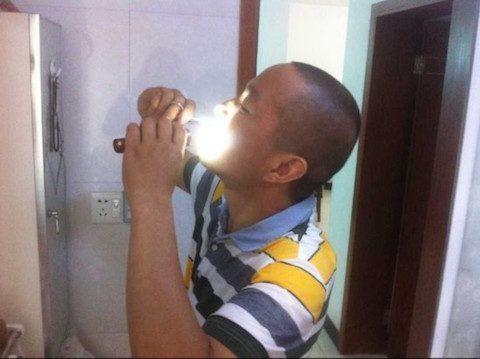When a 41-year-man from an eastern Chinese province could no longer afford the chemotherapy to treat a tumour in his mouth, he decided to take up the knife himself.
With crudely sanitized surgical equipment bought from the local hospital—scissors, scalpel, tweezers—Yu Yifei went into his bathroom, and with the aid of a handheld flashlight, excised the cancerous tissue from his mouth bit by bit.

Yu Yifei, a worker from Quzhou City, Zhejiang Province, demonstrates his tumor removal self-operation in an undated photo. Screen shot/Sohu.com




